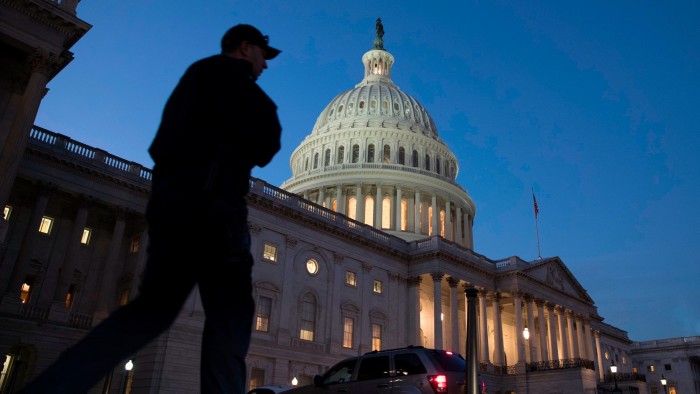Unlock the White House Watch newsletter for free
Your guide to what Trump’s second term means for Washington, business and the world
Wall Street is warning that a little-publicised provision in Donald Trump’s budget bill that allows the government to raise taxes on foreign investments in the US could upend markets and hit American industry.
Section 899 of the bill that passed the House of Representatives last week would allow the US to impose additional taxes on companies and investors from countries that it deems to have punitive tax policies. It could raise taxes on a wide range of foreign entities, including US-based companies with foreign owners, international firms with American branches and investors.
Section 899 could chill corporate investment and stifle demand for US assets when foreign investors are already pulling back from American markets. This retreat, hastened by the Trump administration’s tariff policies, comes as the US is more dependent than ever on foreign investors to buy its growing stock of government debt.
“This is a market-spooking event, hitting already fragile confidence, particularly from foreign investors,” said Greg Peters, co-chief investment officer at PGIM Fixed Income.
“It’s all self-inflicted wounds at a time when you have a lot of debt that needs to get financed here. So the timing is really quite poor.”
A senior executive at a major Wall Street bank echoed Peters, saying, “This is one of the more worrisome ideas to have come out of DC this year. If it goes forward it will definitely cool foreign investment in the US.”
Morgan Stanley analysts said Section 899 would probably pressure the dollar and “disincentivises foreign investment”, while JPMorgan noted that it has “significant implications for both US and foreign corporations”.
Section 899 targets countries with what the US calls “unfair foreign taxes”. Most EU countries, the UK, Australia, Canada and others around the world would be affected, according to law firm Davis Polk.
For foreign investors, Section 899 would increase taxes on dividends and interest on US stocks and some corporate bonds by 5 percentage points every year for four years. It would also impose taxes on the American portfolio holdings of sovereign wealth funds, which are currently exempt.
“The long-term implications [are] going to be quite severe for international companies operating in the United States,” said Jonathan Samford, president of the Global Business Alliance, a trade group representing the largest foreign multinationals investing in the US.
“This provision is not going to impact bureaucrats in Paris or London. It’s going to impact American workers in Paris, Kentucky, and London, Ohio.”
Tim Adams, chief executive of the Institute of International Finance, which represents 400 of the world’s biggest banks and financial institutions, said “at a time when the administration is actively seeking foreign investment in the US to support job creation, capital formation and reshoring of manufacturing capability, this could be counter-productive.
“Any disruption to the flow of capital and foreign direct investment could have negative unintended consequences for American companies, jobs and economic competitiveness.”
While foreign investors in US stocks and some corporate bonds may face higher taxes, it is unclear whether that tax would extend to Treasury debt, according to several analysts and investors. Interest earned on Treasuries is usually tax-exempt for investors based outside the US, and making that taxable would represent an enormous change from current policy.
“Section 899 is legally ambiguous regarding a potential tax on Treasuries,” said Lewis Alexander, chief economic strategist at hedge fund Rokos Capital Management. “Taxing Treasuries could be counter-productive as any potential revenues likely would be outweighed by a resulting increase in borrowing costs [as investors sell the debt].”
But even if Treasuries were not directly taxed, Section 899 would represent another concern for international holders of US debt when many are wary of the country’s gaping deficit and vacillating tariff policies.
“Our foreign clients are calling us panicked about this,” said a managing director at a large US bond fund. “It’s not totally clear whether Treasury holdings will be taxed, but our foreign investors are currently assuming they will be.”
Additional reporting by Martin Arnold in New York and Costas Mourselas in London
Read the full article here




